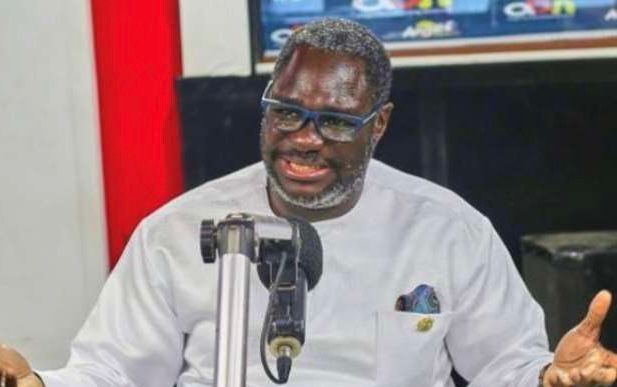In the aftermath of the New Patriotic Party’s (NPP) defeat in the 2024 general elections, a vigorous debate has ignited within the party regarding its future leadership and the strategic direction needed to reclaim power in 2028. Dr. Palgrave Boakye-Danquah, a prominent member of Kennedy Agyapong’s campaign team, has forcefully advocated for Agyapong’s candidacy, arguing that he represents the critical “variable” missing from the NPP’s previous electoral strategy. Boakye-Danquah contends that the 2024 ticket, led by former Vice President Dr. Mahamudu Bawumia, failed to garner the anticipated support from key demographics like the Zongo and Muslim communities, underscoring the need for a candidate with broader appeal. This perspective challenges the assumption that religious or tribal affiliations should be primary determinants in selecting a presidential candidate, instead emphasizing the paramount importance of competence and electability.
Boakye-Danquah’s argument hinges on the belief that Kennedy Agyapong embodies the necessary qualities to revitalize the NPP and lead it to victory in 2028. He posits that Agyapong’s extensive parliamentary experience, coupled with his outspoken nature and perceived ability to connect with a diverse electorate, positions him as a unique and compelling figure within the Ghanaian political landscape. This contrasts with the NPP’s 2024 strategy, which, according to Boakye-Danquah, relied on a candidate whose appeal was potentially overestimated within certain demographics. He suggests that Agyapong represents a fresh start, capable of transcending traditional political boundaries and unifying the party behind a shared vision for the future.
A key element of Boakye-Danquah’s argument is the assertion that Agyapong possesses a “value-driven proposition” that resonates with voters. This proposition likely encompasses Agyapong’s well-known stance against corruption, his entrepreneurial background, and his focus on economic development. Boakye-Danquah believes that these characteristics, combined with Agyapong’s political acumen, will position him as a formidable candidate capable of attracting voters across various social and economic strata. He draws a parallel between Agyapong and former President Jerry John Rawlings, suggesting that Agyapong, like Rawlings, embodies a spirit of change and represents a break from traditional political establishments.
Further bolstering his argument, Boakye-Danquah dismisses the notion that a large pool of candidates inherently increases the chances of electoral success. He stresses that the quality and appeal of the candidate are far more significant than the sheer number of contenders. In his view, Agyapong possesses a rare combination of experience, charisma, and political savvy that distinguishes him from other potential candidates within the NPP. He argues that Agyapong’s track record as a long-serving Member of Parliament demonstrates his commitment to public service and his understanding of the complex issues facing Ghana. This long tenure, according to Boakye-Danquah, provides Agyapong with the credibility and name recognition needed to compete effectively in a national election.
Boakye-Danquah’s advocacy for Kennedy Agyapong highlights the internal dynamics and strategic considerations facing the NPP following its 2024 electoral defeat. His emphasis on electability and the need for a candidate with broad appeal reflects a recognition that the party must adapt its strategies to regain the trust and support of the Ghanaian electorate. He argues that Agyapong’s unique blend of political experience, outspokenness, and perceived ability to connect with voters across various demographics makes him the ideal choice to lead the NPP in 2028. By framing Agyapong as the necessary “variable” for electoral success, Boakye-Danquah underscores the importance of choosing a candidate who can not only unify the party but also resonate with a diverse and increasingly sophisticated electorate.
This debate within the NPP underscores the broader challenges facing political parties in Ghana’s dynamic political landscape. The need to adapt to changing demographics, address evolving economic concerns, and connect with a diverse electorate requires a careful consideration of leadership qualities and strategic direction. Boakye-Danquah’s arguments for Kennedy Agyapong’s candidacy reflect this evolving political reality, highlighting the importance of selecting a candidate who can effectively navigate the complex interplay of political, social, and economic forces shaping Ghana’s future. The upcoming NPP presidential election in January 2026 will be a crucial moment for the party, as it grapples with the lessons of the 2024 defeat and seeks to chart a path back to power. The choice of its next presidential candidate will undoubtedly have significant implications for the party’s future and the direction of Ghanaian politics.


